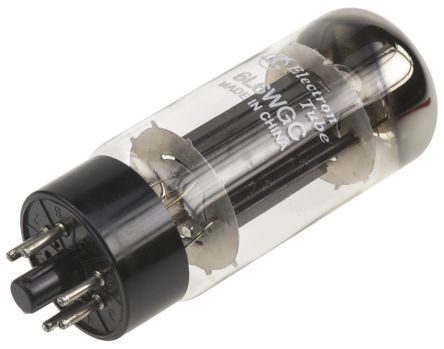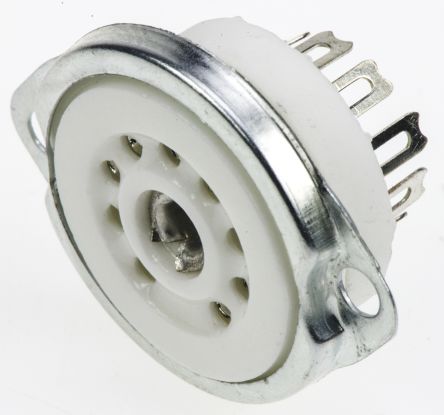- Automation & Control Gear
- Cables & Wires
- Enclosures & Server Racks
- Fuses & Circuit Breakers
- HVAC, Fans & Thermal Management
- Lighting
- Relays & Signal Conditioning
- Switches
- Batteries & Chargers
- Connectors
- Displays & Optoelectronics
- ESD Control, Cleanroom & PCB Prototyping
- Passive Components
- Power Supplies & Transformers
- Raspberry Pi, Arduino, ROCK, STEM Education & Development Tools
- Semiconductors
Vacuum Tubes
Vacuum tubes are a type glass tube device, which has had its gas removed, creating a vacuum space. It is comprised of electrodes that are designed to control electron flow between the electrodes sealed inside the vacuum tubes. Unlike transistors, these tubes can be easily replaced by the user.
How do vacuum tubes work?
Vacuum tubes utilise a principal called thermionic emission in which a metal is heated allowing the electrons to be loosened up. This causes the positively charged anodes to attract the negative electrons emitted by the cathodes by causing an electric current to flow into the anode and out of the cathode.
An advantage of vacuum tubes is that they have a wider dynamic range than transistors circuits. This is mainly attributed to their higher operating voltages and overload tolerances.
Types of vacuum tubes
There are a variety of vacuum tubes available such as;
- Diodes - One of the simplest forms of vacuums tubes available. The tube comprised of two terminals that include both an anode and a cathode.
- Triode - Triode vacuum tubes have electric current flow generates a high potential from the anode to the cathode's ground potential.
- Tetrode - This type of vacuum tubes composition includes a fourth terminal that is also known as the screen that is between the anode and the grid. This screen is designed to reduce the capacitance emitted.
- Pentode - This type of vacuum has a fifth electrode known as a suppressor that is designed to prevent the emission of electrons caused by stimulation of secondary electrons from the anodes.
Applications of Vacuum tubes
Vacuum tubes have a wide range of application in electronic type devices such as;
- Resistance coupled voltage amplifiers
- High-end audio equipment
- Phase inverters


